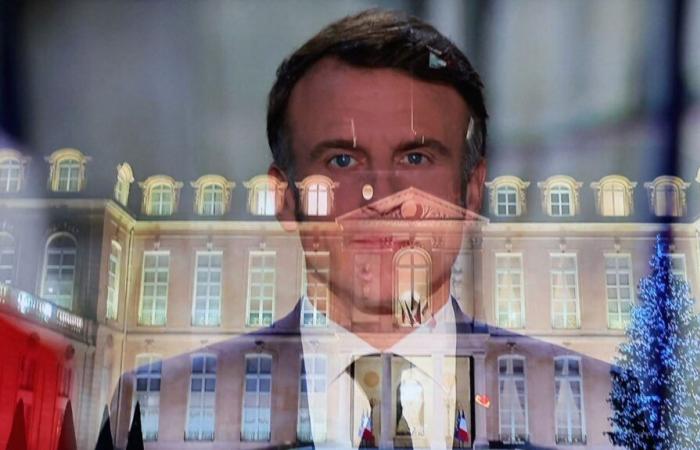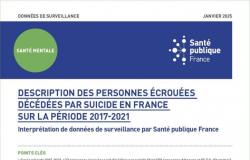
The words “referendum” or “citizens' convention” were not uttered during the presidential greetings on the evening of December 31, but that is what Emmanuel Macron is thinking about, confirms those around him. By putting forward the idea of asking the French to “slice” of the “determining subjects” in 2025, the President of the Republic gives a glimpse of votes discussed, but never organized since his arrival at the Élysée. New citizen conventions could also be convened, after those on end of life or ecology. Franceinfo takes stock of this proposal from the President of the Republic, which has sparked numerous reactions on the political scene.
1 A third citizens’ convention?
Two citizens' conventions have already been organized under the presidency of Emmanuel Macron. The first was launched by the President of the Republic in 2019: the citizens' climate convention. And the second, the citizens' convention on the end of life, dates back to 2022. Each time, 150 citizens are drawn at random, being representative of the French population. The president asks them a question on a subject that resonates in the public debate and they will debate among themselves, question experts and formulate proposals.
For the citizens' climate convention, they were asked to find solutions and proposals to reduce greenhouse gas emissions by at least 40% by 2030. And more recently, Emmanuel Macron asked a new panel if the end-of-life support framework was adapted to the different situations encountered. And if that wasn't the case, what changes do they think should be introduced?
2 Do citizen conventions result in anything concrete?
For the citizens' climate convention, after eight months of work, hearings and debates, those drawn at random made 149 proposals for measures, which had to be taken up without filter, Emmanuel Macron had promised. Except that according to the latest count from the Ministry of Ecological Transition, 100 of their proposals have been fully or partially implemented. The word “partially” is important. For example, regarding the proposition “eliminate all single-use plastics by 2023”it is well taken into account in the anti-waste law for a circular economy, but the release of single-use plastic packaging has been postponed until 2040. And this is the case for many of the measures adopted and considered as ” implementation”. This is what the 150 drawn at random criticized after the fact: for them, only ten of their proposals were taken into account without filter or modification.
And for the citizens' convention on the end of life, its members considered the current legal framework insufficient. Three quarters of them were in favor of active assistance in dying and proposed a whole list of modalities to apply it, such as an evaluation of the discernment of the person being helped or even validation subject to a collegial procedure. . Following these conclusions, at the request of Emmanuel Macron, a bill was presented to deputies this year. It was under discussion until the dissolution of the Assembly on June 9. But its president, Yaël Braun-Pivet, has committed to including the text on the agenda for January 27.
3 In which case can a referendum be decided and under what conditions?
The President of the Republic has at his disposal two types of referendum provided for by two different articles of the Constitution. First, article 11 evokes what we could call the “classic referendum”, at the initiative of the head of state, who poses a question to the French. This question may concern the organization of public authorities or the authorization to ratify an international treaty. This was, for example, the case in 2005, during the last referendum organized in France on the European Constitution, where the “no” vote won.
A referendum can also relate to a future reform, but not just any reform. Article 11 specifies that these are reforms which affect “the economic, social or environmental policy of the Nation”. This means, for example, that a referendum on pension reform, as has been discussed in recent months, would be possible, because it concerns economic policy. On the other hand, according to several constitutional experts, a reform on immigration, which has also been mentioned recently, is not currently provided for by the Constitution. The reason: the subject is not only economic, but also societal.
A second type of referendum is provided for by article 89 of the Constitution and allows the fundamental law to be modified. To do this, the procedure is more complex and cumbersome. The two assemblies, the Senate and the National Assembly, must vote first, word for word, on the constitutional revision before it is submitted to a referendum. This type of referendum is used very rarely, the last time dating back to 2000, when Jacques Chirac lowered the duration of the presidential mandate from 7 to 5 years.
4 Referendums discussed, but never called?
The referendum is often mentioned by presidents, but is in fact rarely called. Thus, in spring 2022, Emmanuel Macron mentioned a possible recourse to a referendum for his pension reform. A few years earlier, in 2020, during the citizens' climate convention, the Head of State had also announced a referendum to include environmental preservation in the Constitution.
Emmanuel Macron is not the first president to discuss a referendum without going through with it. Before him, in 1984, François Mitterrand had announced a referendum to expand the use of the referendum, except that it was never organized.





